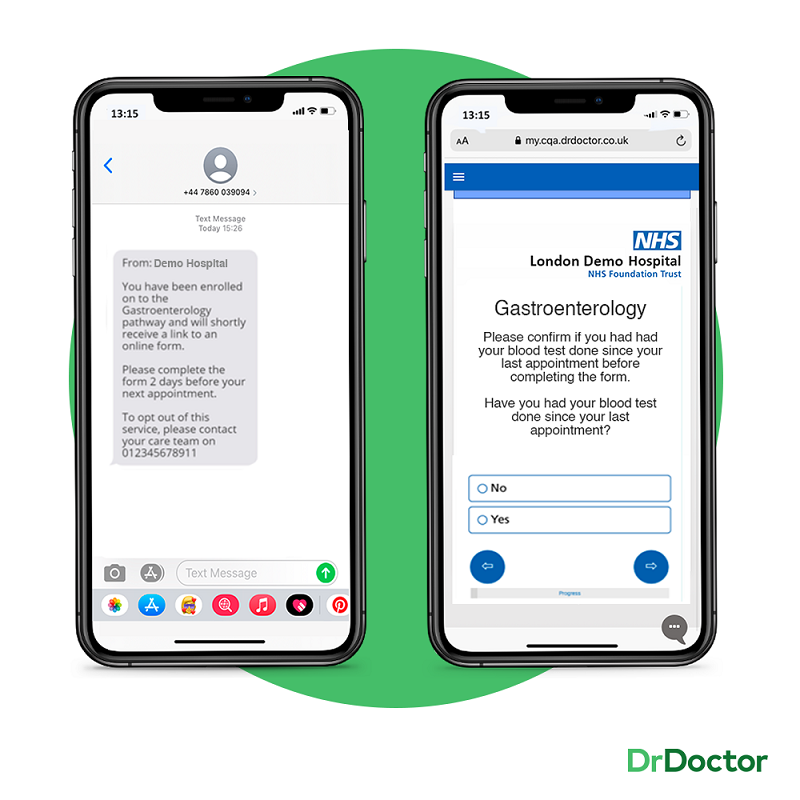Since the start of the COVID-19 pandemic in 2020, the uptake of technology within the health and social care sector has increased exponentially.
And this digital revolution was recently backed by Chancellor, Rishi Sunak’s announcement in his Budget of a £2.1billion cash injection over the next three years to support innovative use of digital technology so hospitals and other care providers are as connected and efficient as possible.
This is on top of a number of funding streams unveiled over the last year aimed at increasing uptake of AI-driven solutions, both for frontline and back-office improvements.
And all of this cash will undoubtedly go some way towards helping to address the massive backlog of patients waiting for appointments, tests, and treatment due to delays brought about by the Coronavirus outbreak.
A rapid response
BBH spoke to some of the country’s leading healthtech industry stalwarts to find out how this cash should best be used and the ramifications for services.
Matt Cox, managing director for the UK and Ireland at Better, said: “We await the detailed guidance of how the additional £2.1billion tech funding will be spent, but I hope that, as we have seen with past capital funding, it isn’t wasted on solutions that create more vendor lock-in.
We can make a measurable and significant impact on the backlog very quickly by empowering individuals to access services only when they need to and enabling them to communicate in the way they want
“Nor do I hope it’s a catalyst for further conversations around a national one-size-fits-all platform.
“Instead, I encourage trusts to instigate a widespread innovative data-centric approach, enabling an eco-system of user-centred applications built on open platforms.”
Kenny Bloxham, managing director of Healthcare Communications, adds: “I’m delighted to see the new tech funding for the NHS being targeted at helping trusts ramp up the implementation of solutions that will help them take control of ever-growing waiting lists, but also provide greater access to digital NHS services for those that want to use them.
“I believe that patient-initiated follow-ups can help people have a more-personal and positive experience by providing greater control and convenience, but also release much-needed capacity across the whole system through widespread reduction in unnecessary appointments.”
Good communication
And Tom Whicher, chief executive of DrDoctor, agreed that communication would be key.
He said: “Two thirds of outpatient volume are review appointments, which is why we need to update patients on when they are likely to be seen in the same way they expect to be updated on when an Amazon delivery will come.
“We can make a measurable and significant impact on the backlog very quickly by empowering individuals to access services only when they need to and enabling them to communicate in the way they want.
“The new funding should support digitally-mature trusts to capitalise on existing investments, but also help level-up those where simple tech is needed to make a real and lasting impact.”
The investment in the basics that still many care providers need must release efficiencies in the whole system if it is going to have the impact desired
DrDoctor has recently worked with University Hospitals Birmingham NHS Foundation Trust (UHB) to launch a suite of digital patient engagement tools as a new way of delivering outpatient care.
These products will save time for staff and patients, and reduce the number of in-person hospital visits.
And patients can continue to be seen at home where clinically appropriate, without the need for them to travel into the hospital.
They can also view hospital letters online and take part in video consultations on their phone, tablet, laptop or computer, providing more-convenient access to care.
In addition, hospital staff can now use digital tools to reduce the time spent managing the booking process, with appointment reminders sent automatically to patients.
Since the new solutions were introduced, staff at UHB have sent almost 55,000 appointment notifications to patients by text messages and email.
Reducing travel
And it is anticipated that this will reduce by 35% the number of appointments patients do not attend (DNA) - the same rate as seen by neighbouring specialist provider, the Royal Orthopaedic Hospital NHS Foundation Trust.
Commenting on the deployment, Nick Barlow, director of applied digital healthcare at UHB, said: “Like all NHS trusts, we have had to transform how care is delivered to our patients.
“By working with DrDoctor, we have been able to move the trust’s digital-first plans forwards, allowing us to deliver some consultations remotely.
“The digital appointment tools should also provide greater patient choice in the future, with patients currently able to read outpatient appointment correspondence online.
We await the detailed guidance of how the additional £2.1billion tech funding will be spent, but I hope that, as we have seen with past capital funding, it isn’t wasted on solutions that create more vendor lock-in
“These tools are an important building block in our longer-terms plans to improve patient care by introducing new technology and innovations.”
But there were also concerns about the still-weak connection between health and social care services which, it is feared, could hinder success.
Sharing information
Andy Meiner, managing director and chief commercial officer at Silverlink, said: “The additional funding will only take the service so far if it isn’t supported by similar investment in other infrastructure, people, and crucially social care capacity.
“I see the bottlenecks in the system, which mean patients end up readmitted to hospital due to the lack of capacity in community and social care.
“The investment in the basics that still many care providers need must release efficiencies in the whole system if it is going to have the impact desired.

Chancellor, Rishi Sunak
“And that means integrated clinical and non-clinical systems that make it easy for carers, whatever the setting, to share information for the benefit of the patient.”
Rachel Murphy, chief executive of Difrent, adds: “While any new additional funding for the NHS is welcome, the current lack of detail surrounding how this latest tech funding will be provided, shared, and managed is concerning.
“The digital transformation seen in the last 18 months has been largely reliant on agile software-as-a-service solutions to longstanding problems.
“And the £2.1billion capital funding won’t help sustain this, nor will it help accelerate the transition to cloud-based technology. Instead, I fear, trusts will be pressured to ‘use it or lose it’ and short-term decisions will be made as a result.
Ultimately, a significant investment in technology that can provide real-time, accurate data can help make the NHS viable for the next generation
“It will be interesting to see in 12 months how much of this public money is spent on ‘public code’ solutions, therefore keeping the value within the NHS.”
Investment in electronic patient record (EPR) systems is expected to rapidly increase among trusts who have not already gone down this route, with Health Secretary, Sajid Javid, last month revealing that 10% of NHS trusts still operate paper-based systems.
Richard Strong, vice president of international services and operations and managing director at Allscripts, comments: “This can’t be allowed to continue, and hopefully this additional funding will be used to empower trusts to ‘level-up’ by building the foundations, or fixing the basics, needed to accelerate their digital maturity, rather than addressing lesser priorities.
“We regularly see trusts putting off the decision to start an EPR project as they think years of disruption and tens of millions of pounds investment to get off the starting blocks is the only solution.
“However, this isn’t the case as trusts such as Gloucestershire and Medway are proving – both who will have gone live with a new EPR in less than six months.”
Collection and interpretation of data through AI-driven solutions will also be another focus area for investment over the coming year.

DrDoctor has been working with trusts across the UK to introduce patient engagement and communication tools
Data-driven decisions
Wayne Miller, EMEA healthcare direction at Zebra Technologies, said: “The waiting times for diagnosis are the most acute in the history of the NHS, so there will be interest in investing significant funding in diagnostics.
Other areas that need to be addressed are patient flow, length of stay, inpatient occupancy, and real-time status.
Hopefully this additional funding will be used to empower trusts to ‘level-up’ by building the foundations, or fixing the basics, needed to accelerate their digital maturity, rather than addressing lesser priorities
“Shifting the responsibility of collecting and sharing data from front-line healthcare staff to an automated process can help reduce a patient’s stay in the hospital.
“but this is a big challenge right now due to a lack of resources which is lengthening hospital stays.
“Data will provide a big gain for the NHS, opening resources, improving patient care and outcomes, as well as reducing costs and helping with reinvestment.
“Ultimately, a significant investment in technology that can provide real-time, accurate data can help make the NHS viable for the next generation.”
—